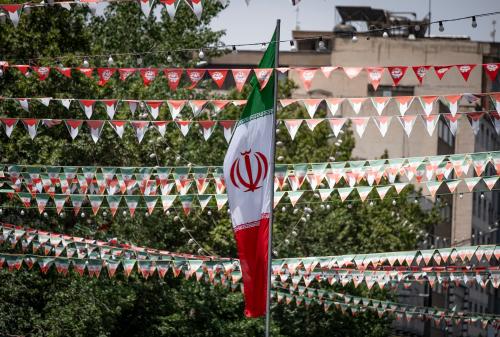President George Bush’s inauguration last January settled the issue of whether the United States will proceed with developing and deploying a missile defense system. It will. The only questions that remain are what kind of system will be deployed when, and with what consequences for international stability and security. Those, indeed, are large and important questions with, as yet, uncertain answers.
The decision to proceed with missile defenses results from three factors. First, there is virtual agreement in Washington that the threat posed by the proliferation of missiles and weapons of mass destruction is growing. More countries are believed to be acquiring these technologies, including some countries whose foreign policy behavior is seen to be both unpredictable and inimical to American interests. Second, four decades of research, including spending some $60 billion on ballistic missile defense research over the past 20 years alone, has begun to pay off in new technologies that promise to provide some protection against small-scale missile attacks. Sensor technologies have advanced to enable adequate discrimination and exceptional tracking and guidance capabilities, so that it is now possible for the proverbial bullet to hit a bullet. Third, with the end of the cold war, long-standing strategic objections to missile defense (including the strict limits on defense incorporated in the ABM Treaty) are no longer applicable. New threats within this new strategic environment call for new responses. Thus, missile defenses are necessary to counter the ability of countries that are once again known as “rogue states” to blackmail or coerce the United States and its allies in ways contrary to their interests. Defenses, in this view, are seen as the best way to extend and protect America’s global reach in a proliferating world.
Each of these reasons has merit. More countries may acquire weapons of mass destruction and the missiles to deliver them over great ranges—if not now, than possibly in the future. Vast sums of research money are paying off in fielding better technologies. And defenses can add a degree of uncertainty in the minds of actual or potential adversaries that complete vulnerability erases. There is, therefore, good reason to pursue missile defenses—and even to deploy systems if and when they become available.
At the same time, it is easy to overstate the threat, the technological advances, and the strategic impact of deploying defenses. Political change in countries like North Korea, Iran, and Iraq may fundamentally alter the character or foreign policy goals of the regime. Developing even near-perfect defenses capable of defeating a dedicated and technologically determined foe may never be possible. And it is unlikely that any president will rely on the uncertainties of defenses (including the knowledge that they may fail with catastrophic consequences) for pursuing policies she or he would otherwise shun.
That leaves a limited, but still important role for deploying missile defenses: basic insurance in case things go wrong. If a missile were ever to be launched against one’s territory, it is better to possess imperfect defenses than none at all. And while such defenses may not alter the strategic calculations of the defender, they are bound to affect the calculus of the attacker. Therefore, the United States should work with its allies in Europe and, if possible, with Russia to devise a strategy for deploying defenses against small-scale missile attacks from third countries. Such a strategy will require that Europeans (and Russia) accept the contributions active defense can make to their security, and the United States to accept that deployment can proceed only if it is embedded within both a broader effort to curb and reverse weapons and missile proliferation and a vigorous attempt to reach agreement with Russia on modifying and updating the existing arms control regime to accommodate such a limited defense.
The Brookings Institution is committed to quality, independence, and impact.
We are supported by a diverse array of funders. In line with our values and policies, each Brookings publication represents the sole views of its author(s).



Commentary
TestimonyMissile Defenses: The Case for a Limited Insurance Defense
April 25, 2001